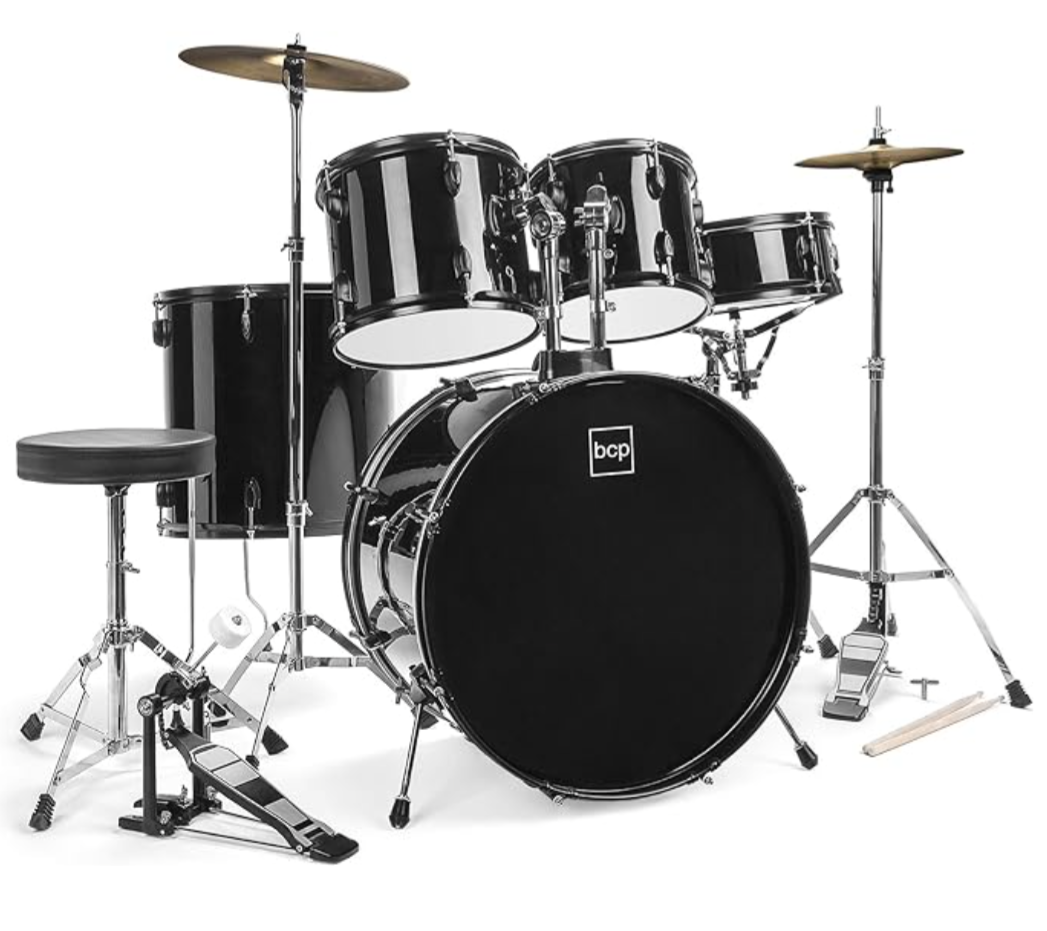Ever thought about picking up drumsticks and unleashing your inner rhythm? Drum learning is more than just a musical endeavor; it’s a life-enriching experience that transcends age and skill level. Whether you’re a music enthusiast, an aspiring drummer, or simply seeking a new educational pursuit, this blog will guide you through the captivating world of drumming. We’ll explore the benefits, provide practical tips, and share insights to inspire your drum learning journey. Ready to get started? Let’s bang it out!
Why Drums? The Unique Benefits of Drum Learning
Drum learning offers a host of benefits that go beyond just making music. First and foremost, it’s an incredible stress reliever. When you play the drums, you engage in a full-body workout that releases endorphins, helping to reduce tension and anxiety. Imagine coming home after a long day and pounding away on a drum pad—it’s both therapeutic and exhilarating.
Furthermore, drum learning enhances your cognitive abilities. Drumming requires coordination between your hands and feet, which stimulates multiple areas of your brain. This multitasking improves your mental acuity, concentration, and even problem-solving skills. For students and professionals alike, the cognitive benefits of drumming can translate into better performance in academics and the workplace.
Lastly, drum learning fosters emotional expression and creativity. Unlike other instruments, drumming is inherently primal and allows you to express yourself in a raw, unfiltered manner. Whether you’re feeling joyous, angry, or melancholic, the drums can be your outlet. This emotional release can lead to a more balanced and happier you.
Choosing Your First Drum Set
If you’re new to drum learning, selecting your first drum set can be daunting. However, it’s essential to start with the right equipment to set the foundation for your learning. For beginners, drum pads and sticks are a great starting point. They are affordable and portable, allowing you to practice anywhere without disturbing your neighbors.
Amazon offers a variety of beginner-friendly options, including drum pads and sticks. These tools will help you build your foundational skills before you invest in a full drum set. When you’re ready to upgrade, you can find a quality drum set on Amazon as well, ensuring you have all the gear you need to master the art of drumming.
The Importance of a Good Teacher
While self-teaching is an option, having a good drum instructor can significantly accelerate your learning process. A skilled teacher can provide personalized guidance, correcting your technique and helping you avoid bad habits. They can also introduce you to various drumming styles, making your drum learning experience more enriching.
Look for local music schools or online platforms that offer drum lessons. Websites like Udemy, Coursera, and even YouTube have a plethora of resources to help you find the right teacher. Investing in quality instruction will pay off in the long run and make your drum learning journey more enjoyable.
Mastering Basic Techniques
Before you can start playing your favorite songs, you need to master the basic techniques. These foundational skills are crucial for any aspiring drummer. Start with learning how to hold your drumsticks correctly. The grip should be firm but relaxed, allowing for fluid motion.
Next, focus on basic strokes like the single stroke roll, double stroke roll, and paradiddles. These are the building blocks of more complex rhythms. Practice these strokes daily to build muscle memory and improve your speed and accuracy. Consistent practice is key to mastering these techniques.
Finally, work on your timing and rhythm. Use a metronome to keep time and ensure you’re playing at a consistent tempo. This will not only improve your timing but also prepare you for playing with other musicians. Remember, the drums are the backbone of any band, and your timing needs to be impeccable.
Exploring Different Drumming Styles
One of the beauties of drum learning is the diversity of styles you can explore. From rock and jazz to Latin and Afro-Cuban, each genre offers unique challenges and opportunities for growth. Start by listening to drummers who excel in different styles. Observe their techniques and try to emulate them.
For instance, if you’re into rock drumming, study the works of legends like John Bonham and Neil Peart. Interested in jazz? Check out Buddy Rich and Max Roach. Each style has its own set of rudiments and techniques, so diversifying your skill set will make you a more versatile drummer.
Don’t be afraid to experiment with different genres. The more styles you explore, the more well-rounded you’ll become. Plus, it’s a lot of fun to step out of your comfort zone and try something new.
Joining a Community of Drummers
Drum learning is a communal experience. Joining a community of like-minded individuals can provide you with invaluable support and motivation. Look for local drum circles or online forums where you can share your progress, ask for advice, and even collaborate on projects.
Facebook groups and Reddit communities dedicated to drumming are excellent places to start. These platforms allow you to connect with drummers from around the world, share your experiences, and learn from others. Being part of a community can make your drum learning journey more enjoyable and less isolating.
Setting Realistic Goals
Setting realistic goals is crucial for your drum learning progress. Start by setting short-term goals like mastering a particular rudiment or learning a new song. These small victories will keep you motivated and give you a sense of accomplishment.
Long-term goals are equally important. Whether it’s joining a band, recording a demo, or performing live, having a big-picture objective will keep you focused. Write down your goals and revisit them regularly to track your progress. This will help you stay on course and measure your improvements over time.
Balancing Practice with Play
While disciplined practice is essential, it’s equally important to have fun. Balancing structured practice sessions with free play can keep your drum learning experience enjoyable. Dedicate a portion of your practice time to just jamming along with your favorite tracks. This not only makes practice fun but also helps improve your improvisational skills.
Remember, the ultimate goal of drum learning is to enjoy making music. Don’t get too caught up in perfection. Allow yourself to make mistakes and learn from them. The more you enjoy the process, the more likely you are to stick with it.
Recording and Reviewing Your Progress
Recording your practice sessions is a great way to track your progress. It allows you to hear yourself objectively and identify areas that need improvement. Use your smartphone or a simple recording device to capture your playing.
Review your recordings regularly to monitor your progress. Pay attention to your timing, technique, and overall sound. This will give you a clear picture of where you stand and what you need to work on. Plus, it’s incredibly satisfying to listen to your improvements over time.
Advanced Techniques and Tricks
Once you’ve mastered the basics, it’s time to move on to more advanced techniques. Learn how to incorporate ghost notes, flams, and drags into your playing. These subtle nuances can add depth and complexity to your drumming.
Experiment with different time signatures and polyrhythms. Playing in odd meters like 7/8 or 5/4 can be challenging but incredibly rewarding. It forces you to think differently and pushes your boundaries as a musician.
Advanced techniques also include learning how to tune your drums and experimenting with different drumheads and sticks. These small adjustments can significantly impact your sound and overall performance.
Staying Inspired
Drum learning is a lifelong journey, and staying inspired is key to your continued growth. Surround yourself with music that excites you. Watch drumming videos, attend live performances, and read articles about your favorite drummers.
Create a practice space that inspires you. Decorate it with posters of your favorite bands, keep it organized, and make sure it’s a place you enjoy spending time in. The more inspired you are, the more motivated you’ll be to practice and improve.
Conclusion
Drum learning is an exciting and rewarding endeavor that offers numerous benefits. From stress relief and cognitive enhancement to emotional expression and creativity, the advantages are endless. By following the tips and insights provided in this blog, you can start your drumming journey on the right foot.
Ready to take your drumming to the next level? Subscribe to our email list for more tips, and exclusive deals on drumming gear. Let’s make some noise together!






